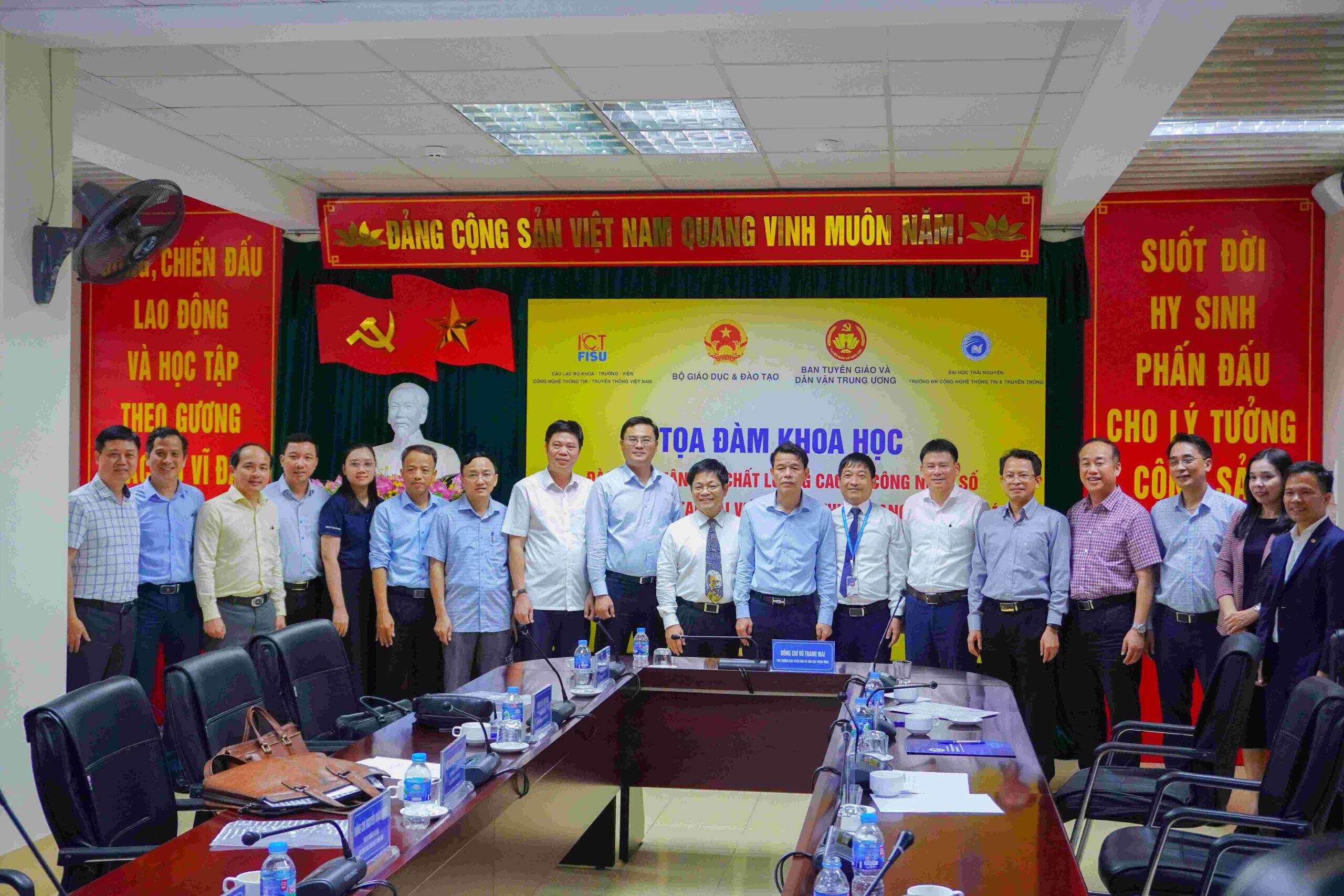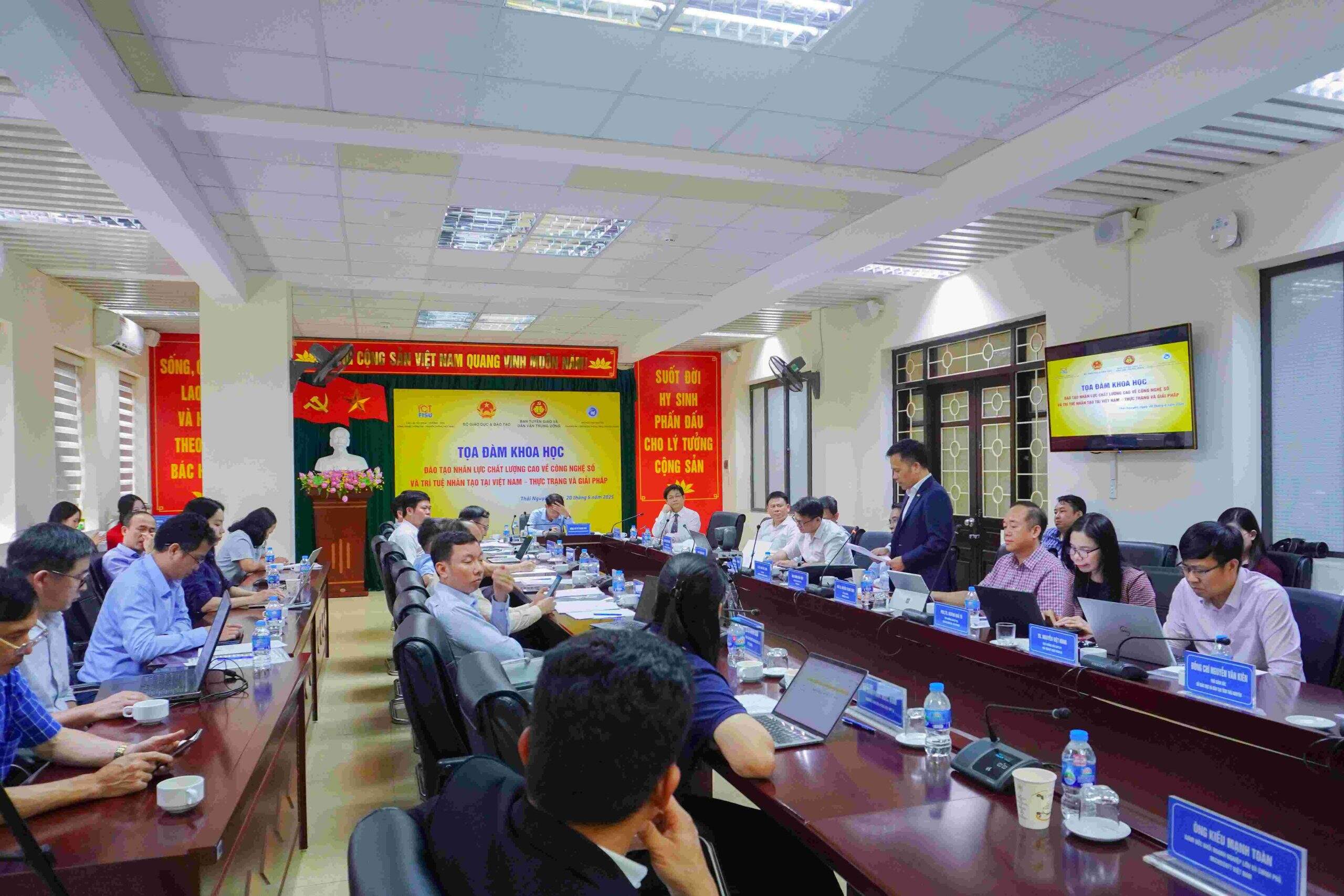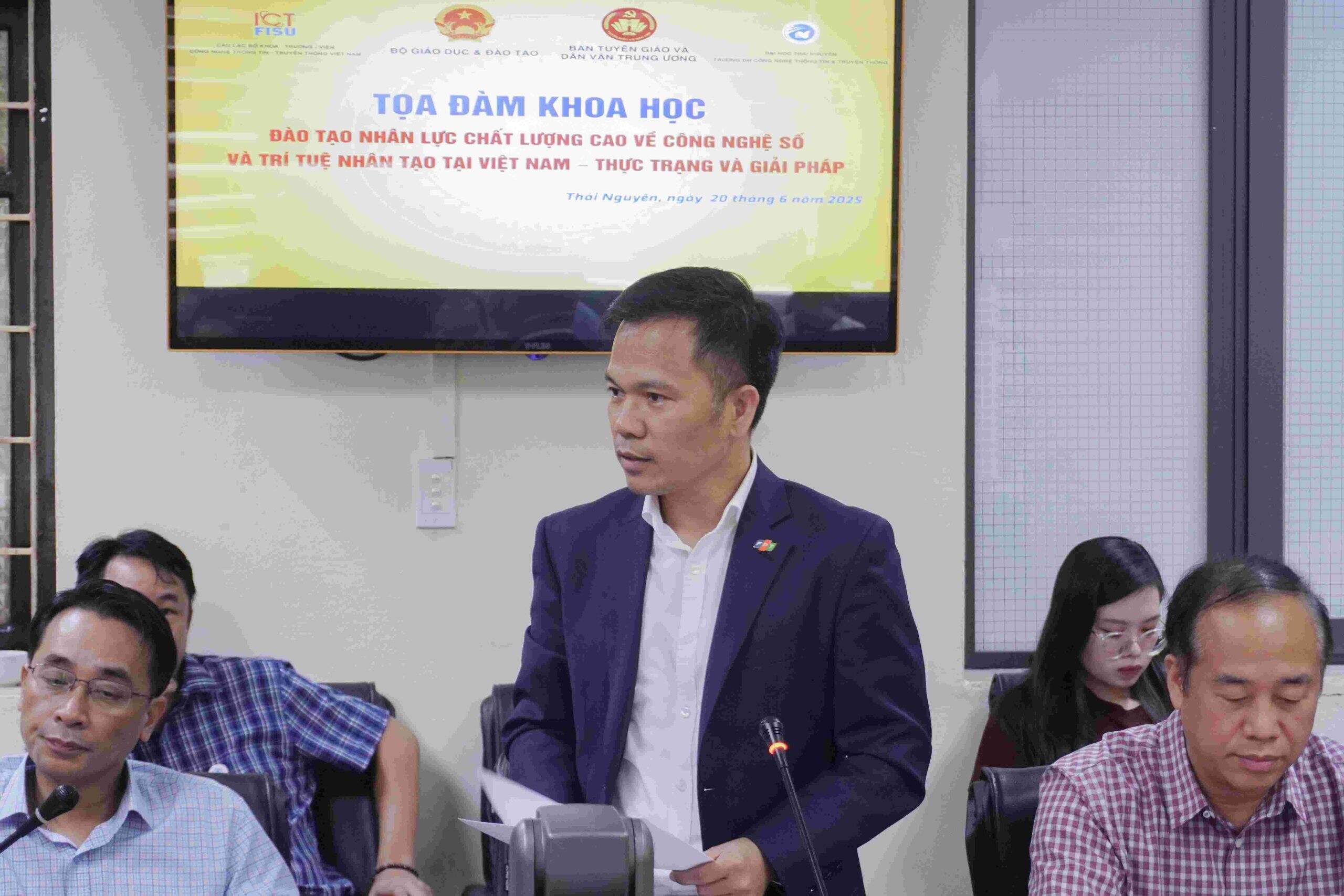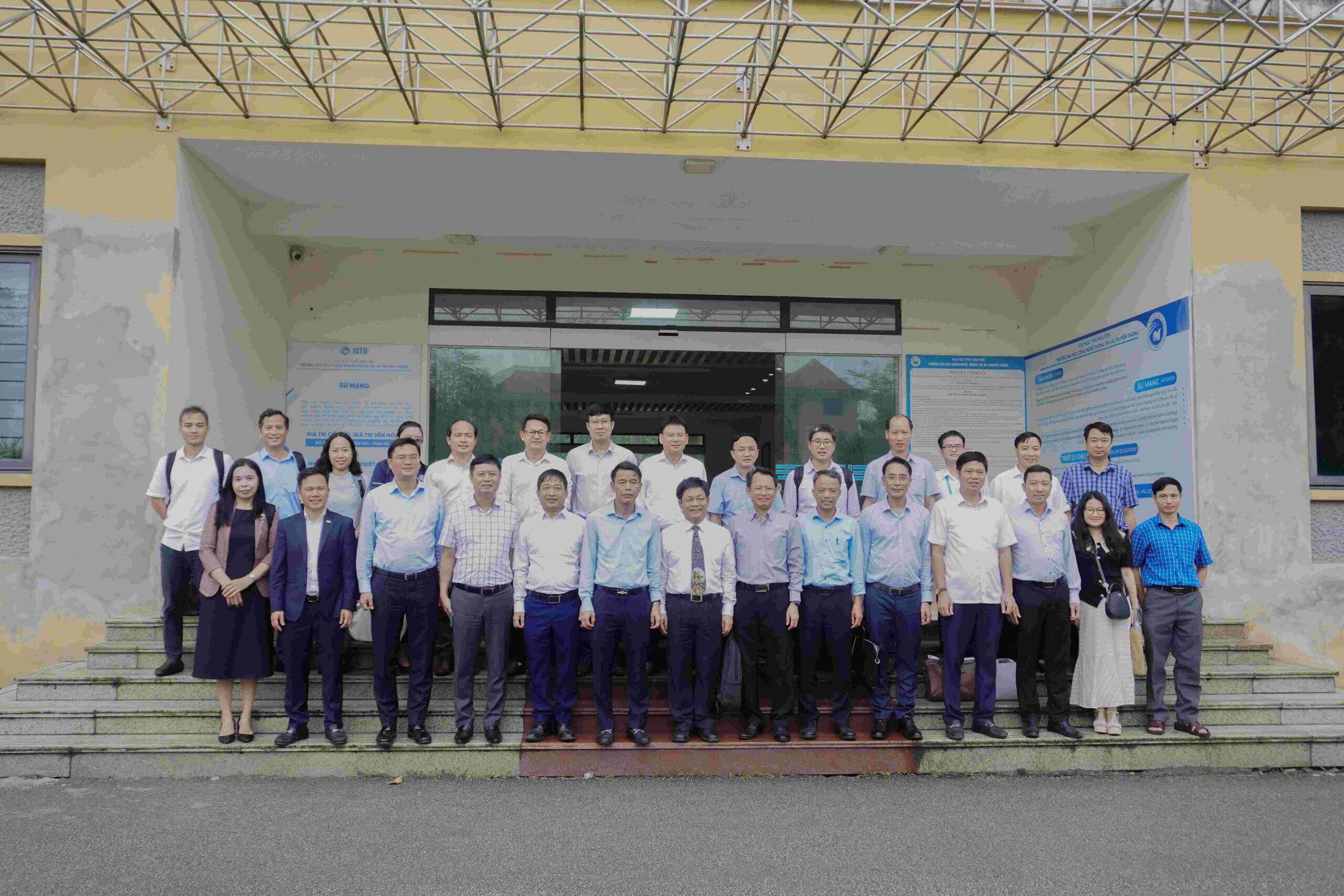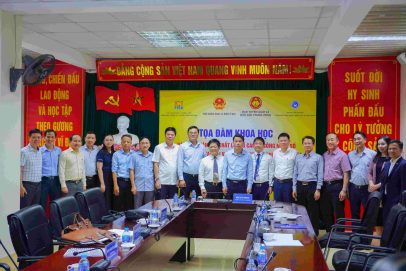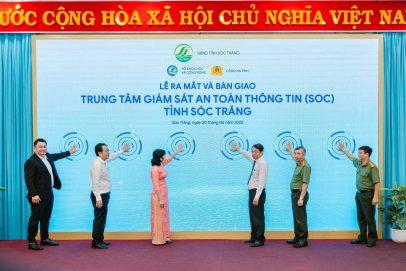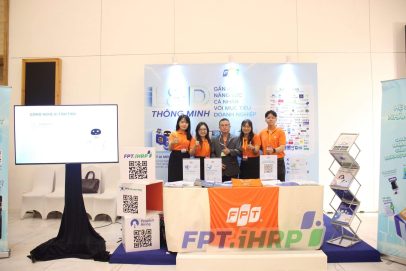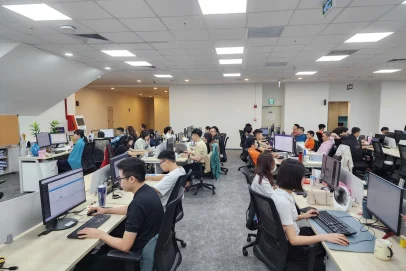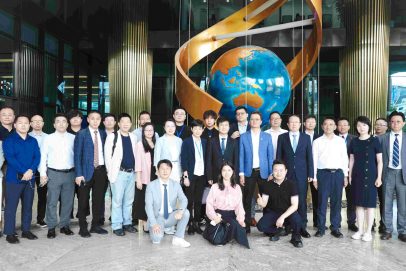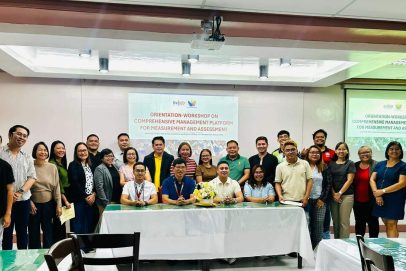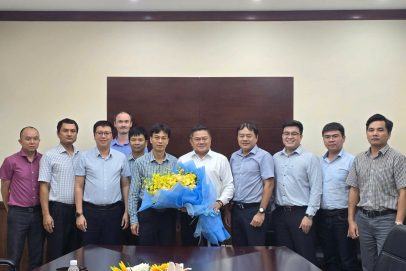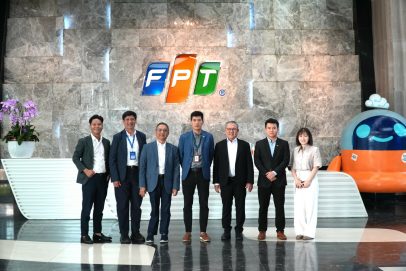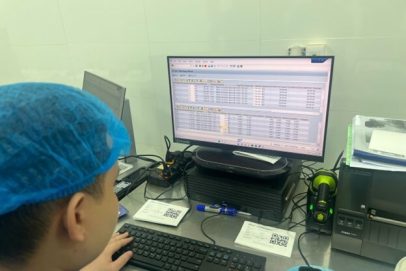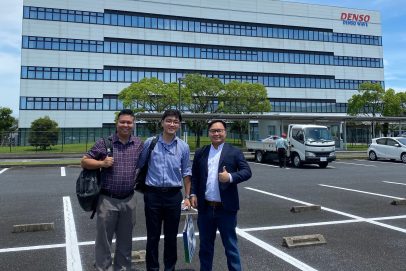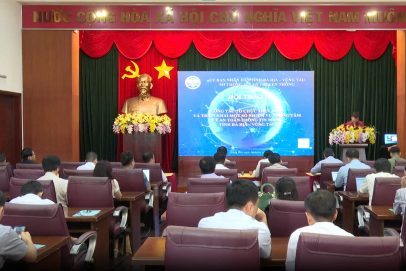FPT joins Vietnam in building high-quality tech talent pool under Resolution 57-NQ/T
On June 20, 2025, a scientific seminar titled “Training High-Quality Human Resources in Digital Technology and Intellectual Capacity: Current Status and Breakthrough Solutions” was held at the University of Information and Communication Technology (ICTU), Thai Nguyen University.
At the event, Mr. Duong Van Thuy, Chief Delivery Officer at FPT IS, represented FPT Corporation, participated in the discussion, shared insights on talent demand, and proposed initiatives to train a high-quality workforce.
The scientific seminar was held in Thai Nguyen.
The seminar was chaired by the Central Commission for Propaganda and Education and the Central Commission for Mass Mobilization, in coordination with the Ministry of Education and Training, the Vietnam IT–Telecommunications Universities and Institutes Club (FISU Vietnam), and the University of Information and Communication Technology (ICTU), Thai Nguyen University.
Full view of the seminar
The event holds significant importance as Vietnam accelerates its national digital transformation and economic development efforts. The seminar aimed to comprehensively assess the current state of high-quality human resource training in digital technology and artificial intelligence, while proposing breakthrough perspectives, goals, and solutions to enhance the scale, quality, and structural composition of the workforce to meet the country’s long-term development needs. This is a critical foundation contributing to the implementation of Resolution 57-NQ/TW on promoting scientific, technological, creative innovation, and national digital transformation.
In her opening speech, Ms. Vu Thanh Mai, Deputy Head of the Central Propaganda Department and Central Mass Mobilization Department, emphasized the strategic importance of science and technology and the development of high-quality human resources. She stated that science and technology, along with AI, are long-term strategic missions that determine the future and global standing of the nation. Their success requires strong political will, vision, comprehensive solutions, and engagement from the entire political and social system, particularly the role of education leaders, scientists, and the tech business community. Ms. Vu Thanh Mai also hoped the seminar would gather valuable insights and proposals to inform the Party, government, and policy-making bodies, to address existing “bottlenecks” in developing this critical workforce.
Currently, around 150 universities and colleges across the country offer training programs related to information technology, alongside approximately 74,000 tech enterprises that play a key role in workforce development. However, the training of human resources in digital technology and artificial intelligence (AI) in Vietnam still faces significant limitations in both scale and quality. This was the shared assessment of representatives from universities and businesses participating in the event.
Mr. Duong Van Thuy shared his insights at the seminar.
Mr. Duong Van Thuy – Chief Delivery Officer at FPT IS, FPT Corporation – shared: “FPT currently has over 85,000 employees worldwide working across various sectors, strategically focusing on the ‘AI – Semiconductor – Smart Mobility – Digital and Green Transformation’ pillars. Specifically, these include Artificial Intelligence (AI), semiconductors, automotive technology, digital transformation, and green transformation. Accordingly, workforce development has been our core mission over the years. We’ve implemented a lifelong learning program, emphasizing AI talent development through initiatives such as training, upskilling, infrastructure development, and AI solution building. These efforts reflect our commitment to supporting the implementation of Resolution 57-NQ/TW.”
Drawing from FPT’s real-world experience in recruiting and training thousands of personnel annually, Mr.Thuy highlighted two key gaps between fresh graduates and industry needs. The first, he noted, is the rapid and constant evolution of technology and shifting market demands. The second is the lack of essential job skills and professional readiness for real-world working environments.
“Many students only know about the role of a software developer, while the tech ecosystem requires a much broader range of expertise — from business analysts and software testers to project managers,” Mr. Thuy emphasized. “All of these roles demand proper training and early exposure to real-world problem-solving.”
According to him, in order to shorten the journey from “learner” to “professional,” training programs must provide more hands-on, real-world experiences—opportunities for students to take part in “small battles,” solving practical problems sourced from businesses. These experiences will serve as launchpads, preparing them to confidently tackle “larger battles” — the technological challenges at both national and global scales.
The delegates took a commemorative photo.
Mr. Thuy proposed improving the quality of Vietnam’s high-level workforce through close collaboration among three key stakeholders: universities, businesses, and the government. In this model, universities would be responsible for organizing and structuring training programs that align with both national strategies and industry needs. Early involvement of businesses in student development would create real-world learning environments, helping students gain practical experience and expand their skill sets beyond academic knowledge, shortening the path to professional readiness. FPT affirms its commitment to working alongside institutions and universities to develop high-quality talent, build internship models in core tech fields, and contribute to Vietnam’s growth in the global era.


